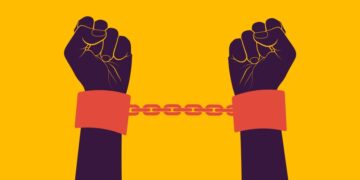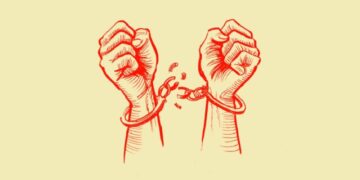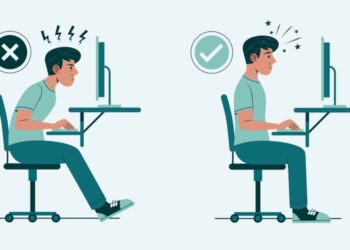Unemployment, pay cuts, high cost of living, and unprecedented debts are just a few of the many financial woes many people experience. This is in turn has a knock-on effect on mental health, especially for people who may be struggling to afford to meet their most basic needs, keep up with bills, or face the harsh reality of home foreclosure or bankruptcy. These can cause or exacerbate anxiety, depression, and stress. Spikes in cases reporting depressive symptoms, deteriorating mental well-being, individuals engaging in self-harming behavior, increased suicide rates, and increased dependence on substances are often attributed to financial insecurity and uncertainty.
Here are ways to protect your mental health when in a financial crisis.
1. Stop catastrophizing
When the economy is struggling, it’s easy to assume the worst. You may panic that you’ll lose your job or that you will not be able to put food on the table, or that you will not be able to pay rent. This only makes your anxiety worse. Try to think through the situation logically. If you have a sense of job security, or another side hustle, it’s unlikely that your worst fears related to a struggling economy will come to fruition. Consider, just for a moment, that your worst fears did come true.
How would that look like? Chances are that if you did lose a job, for instance, that you may have to search for another job or start a business. You may also take a job that has lower income or accept a job that is a little different from what you’re doing now. Even if this worst-case scenario does come to fruition, you’ll be likely to find that it is not as threatening as you perceive it to be when catastrophizing.
2. Remain calm
When we feel threatened, our fight or flight response – the body’s stress response – kicks in and makes changes in the body. The heart rate quickens, stress hormones such as cortisol are released, and a host of other changes occur that allow the body a quick burst of energy to run away fast or stay and fight. While these strategies have worked for thousands of years, they aren’t always practical now. Chronic activation of this survival mechanism is damaging to our physical and mental wellness. Hence, there is need to remain calm amidst the storm.
3. Develop healthy coping mechanisms
Even if you have developed effective tools for protecting your mental health, thinking about financial problems, and living through them, can be stressful. Now is the time to develop healthy coping strategies, so you don’t fall victim to maladaptive ones like drug and alcohol use. If discretionary income is lower in the midst of struggling economic times, there are plenty of ways you can care for yourself without digging in your pockets, such as taking a walk, social connections among others.
4. Focus on your own situation
When every time you watch news or go through social media platforms and the news you get are about high inflation, additional taxes and high cost of fuel, it’s easy to panic. Instead of allowing reports of the struggling economy to make you anxious, focus on the reality of your own situation, and remember that news reports provide general information about the nation as a whole. While the national economy can certainly impact your personal finances, it doesn’t tell the entire story.
5. Get quality sleep
One of the first things to suffer when encountering money problems is your sleep. Racing thoughts and anxiety about the future can impact your ability to both fall asleep and get a good night’s rest. Financially stressed people fall into the worst sleepers. So, it is good to focus on getting enough shut-eye.
6. Be kind to yourself
Make self-care a priority. Even if it involves taking five minutes to take a walk and temporarily remove yourself from the situation, doing something that is going to positively impact your mental health can help break the cycle of negativity caused by financial worries.
7. Identify where you still have control
Debt and uncertainty can make one feel out of control, so maintaining a healthy routine can help give you a better perspective. Anxious thoughts or depression associated with financial stress can make maintaining a routine difficult, so start small in building healthy habits and avoid triggers to both unhealthy coping mechanisms and impulsive spending.
8. Stay connected
Humans are social creatures. Observational studies have suggested a correlation between our physical health and our relationships with family, friends and community, as well as between social connectedness and mental health. While it’s understandable that staying connected can feel much harder right now, it’s important to keep reaching out – for your own sake and the sake of those you love.
9. Get professional help
While there are strategies you can employ to care for your mental health in the face of economic decline, there are some cases in which you may need to reach out for professional intervention. Severe worry and concern can lead to clinical levels of depression, anxiety, and substance misuse. If feelings of worry, fear, or sadness related to struggling economic times have begun to interfere with daily life or contribute to unhealthy coping strategies, such as substance abuse, you would benefit from working with a mental health professional. In therapy sessions, you can learn to reframe negative thoughts and develop healthier coping mechanisms so that financial woes do not have a significant effect on your mental health functioning.
10. Plan
Remember that nothing lasts forever, not even an economic crisis. Keep in mind that better times can be created ahead by dealing with financial challenges of today. Create a plan by looking at all the possibilities you have open (even if it may not seem like there are many). Talk to a financial advisor, for example, and get a clear idea of where you are right now and where you’re going. Your plan may span several years, but it’s important to have an idea of how you’re going to handle this crisis. Not only will it be easier to know what to do, but having a plan can put your mind at ease so you’re not thinking about finances and “what to do” all the time.


































































































































































































